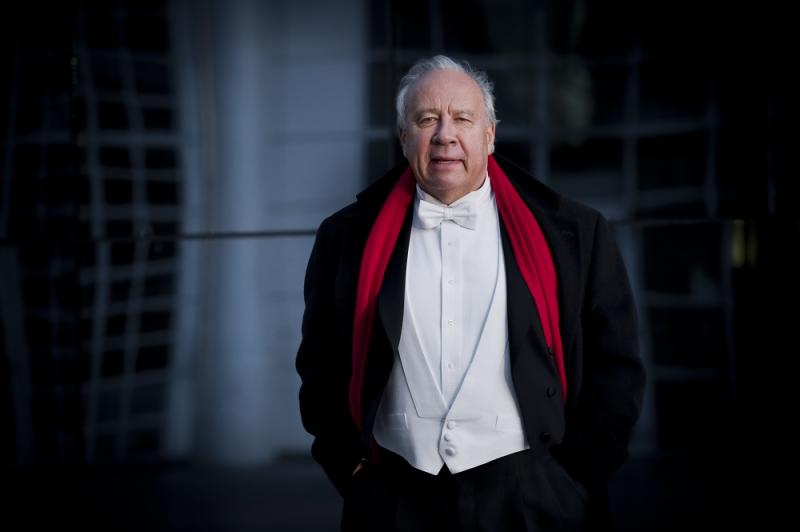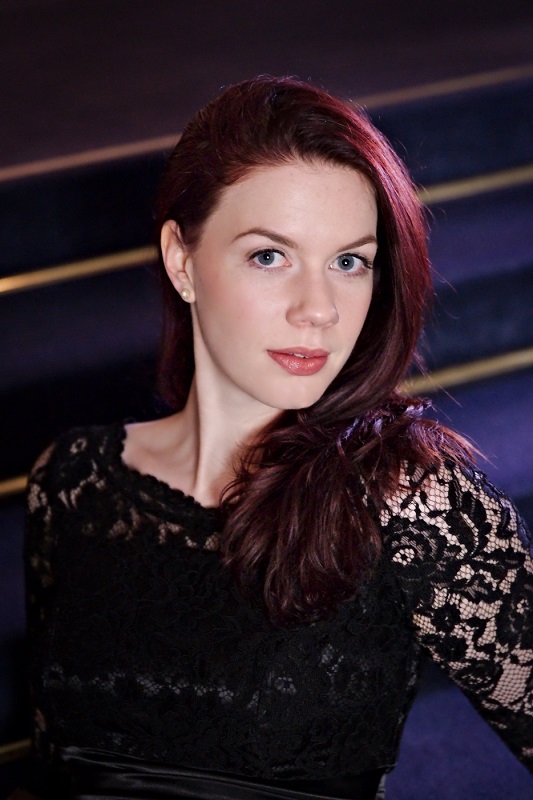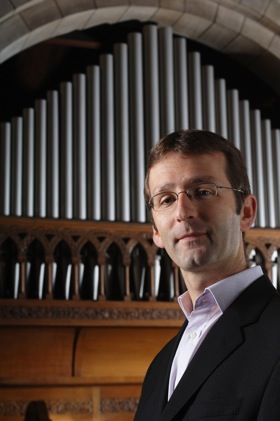Morison, RSNO, Järvi, Usher Hall, Edinburgh review – French romance | reviews, news & interviews
Morison, RSNO, Järvi, Usher Hall, Edinburgh review – French romance
Morison, RSNO, Järvi, Usher Hall, Edinburgh review – French romance
Good Gallic ingredients from the great Scottish-Estonian partnership don’t quite add up

To hear Neeme Järvi conduct the Royal Scottish National Orchestra is to witness one of the great musical partnerships, one that has evolved into an enduring friendship.
His gift to the orchestra has never been forgotten. It was not until 2006, after a nine year absence, that he was appointed Conductor Laureate, and his last appearance with the orchestra was in 2015, but when he is re-united with the players he once called his “Berlin Philharmonic” these long interegnums count for nothing. Now somewhat stiff of gait, and sparing in his gesticulations, he still holds this orchestra --and its audience -- in the palm of his hand.
 The programme for this concert was a slightly mixed bag. Owing to the regrettable indisposition of Sarah Connolly, Reger’s Serenade and An die Hoffnung were dropped from the programme and replaced with excerpts from Delibes’ ballet Sylvia and Bizet’s opera Carmen, the latter sung by mezzo Catriona Morison, 2017 Cardiff Singer of the World (pictured left)..
The programme for this concert was a slightly mixed bag. Owing to the regrettable indisposition of Sarah Connolly, Reger’s Serenade and An die Hoffnung were dropped from the programme and replaced with excerpts from Delibes’ ballet Sylvia and Bizet’s opera Carmen, the latter sung by mezzo Catriona Morison, 2017 Cardiff Singer of the World (pictured left)..
Whatever depth Järvi might have brought to the Reger became, in the Delibes, a charmingly lightweight celebration of orchestral athletics. We were left to imagine nymphs cavorting, worshipping Bacchus, shooting each other with arrows and all the joyful nonsense of a late 19th century mythological ballet, but the music is gorgeous, tuneful, and was played with deft precision. A special mention to some lovely playing from the clarinet in a duet with the front desk of the cellos, which leads into the "Valse lente".
Morison came on stage dressed in a scarlet ballgown and sporting a necklace containing most of the diamonds in Scotland – she certainly looked the part of the femme fatale for three of the big arias from Carmen: the Habanera, the solo in the Card Scene and the Seguidilla. She sounded it too; there was nothing too brash or openly seductive, for the most part she conveyed the text in a gentle mezzo forte that only occasionally blossomed but was never pushed. Her French was excellent – she has the flexible embouchure for the language. Best of the three was the Card Scene monologue, a dark vision of Carmen’s fate with some gloriously low notes and as much a sense of menace as you could expect from an aria sung out of context. If there was a disappointment it was in the programming – despite an orchestral prelude the arias don’t really segue very easily – indeed the third one had got under way before Järvi had found his place in the score, and it all came to an abrupt close without anyone really realising it.
 I suspect most of the audience were there for Saint-Saëns's Third Symphony, the "Organ”. It is still a cause for local celebration, tinged with relief, that the Usher Hall organ, out of commission for most of the 1980s and 1990s is back in triumphant working order and is available on those rare occasions when composers choose to add heft to their orchestral writing with the inclusion of the king of instruments. This is an unashamedly romantic showpiece, with a glittering cascade of scales from a piano duet (slightly too quiet to be appreciated) and a hefty contribution from the organ, whose role is not just adding ballast to the soundscape but is actually pivotal to the forward march of the music. That said, the low pedal notes that accompanied the melodious adagio were so low as to be almost pitchless, not so much music but an audible manifestation of great power. Michael Bawtree (pictured above), well known in the city as an organist and conductor, certainly knows his way around the restored Norman and Beard instrument, which boomed and quaked impressively in the final peroration.
I suspect most of the audience were there for Saint-Saëns's Third Symphony, the "Organ”. It is still a cause for local celebration, tinged with relief, that the Usher Hall organ, out of commission for most of the 1980s and 1990s is back in triumphant working order and is available on those rare occasions when composers choose to add heft to their orchestral writing with the inclusion of the king of instruments. This is an unashamedly romantic showpiece, with a glittering cascade of scales from a piano duet (slightly too quiet to be appreciated) and a hefty contribution from the organ, whose role is not just adding ballast to the soundscape but is actually pivotal to the forward march of the music. That said, the low pedal notes that accompanied the melodious adagio were so low as to be almost pitchless, not so much music but an audible manifestation of great power. Michael Bawtree (pictured above), well known in the city as an organist and conductor, certainly knows his way around the restored Norman and Beard instrument, which boomed and quaked impressively in the final peroration.
The applause was vocal enough, encouraged by a mischievous Järvi, to merit an encore. At one moment it looked as if they might reprise the last movement, but I suspect the organist had run out of stops to pull and they settled instead for the waltz from Delibes’s Coppélia, a lovely bonne bouche to end the evening. Clasping his baton and score under one arm, Järvi gallantly offered his other to the deputy leader whom he led off stage to continuing applause.
rating
Explore topics
Share this article
The future of Arts Journalism
You can stop theartsdesk.com closing!
We urgently need financing to survive. Our fundraising drive has thus far raised £49,000 but we need to reach £100,000 or we will be forced to close. Please contribute here: https://gofund.me/c3f6033d
And if you can forward this information to anyone who might assist, we’d be grateful.

Subscribe to theartsdesk.com
Thank you for continuing to read our work on theartsdesk.com. For unlimited access to every article in its entirety, including our archive of more than 15,000 pieces, we're asking for £5 per month or £40 per year. We feel it's a very good deal, and hope you do too.
To take a subscription now simply click here.
And if you're looking for that extra gift for a friend or family member, why not treat them to a theartsdesk.com gift subscription?
more Classical music
 Robin Holloway: Music's Odyssey review - lessons in composition
Broad and idiosyncratic survey of classical music is insightful but slightly indigestible
Robin Holloway: Music's Odyssey review - lessons in composition
Broad and idiosyncratic survey of classical music is insightful but slightly indigestible
 Classical CDs: Wolf-pelts, clowns and social realism
British ballet scores, 19th century cello works and contemporary piano etudes
Classical CDs: Wolf-pelts, clowns and social realism
British ballet scores, 19th century cello works and contemporary piano etudes
 Bizet in 150th anniversary year: rich and rare French offerings from Palazzetto Bru Zane
Specialists in French romantic music unveil a treasure trove both live and on disc
Bizet in 150th anniversary year: rich and rare French offerings from Palazzetto Bru Zane
Specialists in French romantic music unveil a treasure trove both live and on disc
 Scottish Chamber Orchestra, Ibragimova, Queen’s Hall, Edinburgh review - rarities, novelties and drumrolls
A pity the SCO didn't pick a better showcase for a shining guest artist
Scottish Chamber Orchestra, Ibragimova, Queen’s Hall, Edinburgh review - rarities, novelties and drumrolls
A pity the SCO didn't pick a better showcase for a shining guest artist
 Kilsby, Parkes, Sinfonia of London, Wilson, Barbican review - string things zing and sing in expert hands
British masterpieces for strings plus other-worldly tenor and horn - and a muscular rarity
Kilsby, Parkes, Sinfonia of London, Wilson, Barbican review - string things zing and sing in expert hands
British masterpieces for strings plus other-worldly tenor and horn - and a muscular rarity
 From Historical to Hip-Hop, Classically Black Music Festival, Kings Place review - a cluster of impressive stars for the future
From quasi-Mozartian elegance to the gritty humour of a kitchen inspection
From Historical to Hip-Hop, Classically Black Music Festival, Kings Place review - a cluster of impressive stars for the future
From quasi-Mozartian elegance to the gritty humour of a kitchen inspection
 Shibe, LSO, Adès, Barbican review - gaudy and glorious new music alongside serene Sibelius
Adès’s passion makes persuasive case for the music he loves, both new and old
Shibe, LSO, Adès, Barbican review - gaudy and glorious new music alongside serene Sibelius
Adès’s passion makes persuasive case for the music he loves, both new and old
 Anja Mittermüller, Richard Fu, Wigmore Hall review - a glorious hall debut
The Austrian mezzo shines - at the age of 22
Anja Mittermüller, Richard Fu, Wigmore Hall review - a glorious hall debut
The Austrian mezzo shines - at the age of 22
 First Person: clarinettist Oliver Pashley on the new horizons of The Hermes Experiment's latest album
Compositions by members of this unusual quartet feature for the first time
First Person: clarinettist Oliver Pashley on the new horizons of The Hermes Experiment's latest album
Compositions by members of this unusual quartet feature for the first time
 Gesualdo Passione, Les Arts Florissants, Amala Dior Company, Barbican review - inspired collaboration excavates the music's humanity
At times it was like watching an anarchic religious procession
Gesualdo Passione, Les Arts Florissants, Amala Dior Company, Barbican review - inspired collaboration excavates the music's humanity
At times it was like watching an anarchic religious procession
 Classical CDs: Camels, concrete and cabaret
An influential American composer's 90th birthday box, plus British piano concertos and a father-and-son duo
Classical CDs: Camels, concrete and cabaret
An influential American composer's 90th birthday box, plus British piano concertos and a father-and-son duo
 Cockerham, Manchester Camerata, Sheen, Martin Harris Centre, Manchester review - re-enacting the dawn of modernism
Two UK premieres added to three miniatures from a seminal event of January 1914
Cockerham, Manchester Camerata, Sheen, Martin Harris Centre, Manchester review - re-enacting the dawn of modernism
Two UK premieres added to three miniatures from a seminal event of January 1914

Add comment